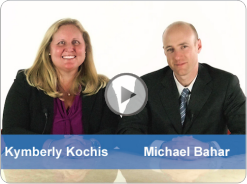Transportation Disrupted: Artificial Intelligence in the Driver’s Seat
On May 3, 2017, Eversheds Sutherland hosted a symposium on the future of automated vehicles. Topics included the legal and ethical risks, the insurance implications, and the data and IP issues arising from the shift to automated technology and the connected car.
The conference opened with remarks by Vinn White, the former Assistant Secretary for Transportation Policy. Mr. White set the stage, outlining key trends in the automotive industry and the steps the previous administration had taken to prepare for driverless cars. He also articulated many of the policy questions raised by the new technology.
Three panels then addressed those questions in greater detail. The first panel, on legal and ethical risks, spoke about potential new technologies. It discussed how liability might shift from a driver-focused negligence regime to a technology-focused product liability regime and the implications for contractual risk allocation, insurance, and regulatory changes. The panel also discussed ethical questions raised by use of algorithms to make decisions for the vehicle. The second panel addressed insurance more specifically. One speaker addressed trends in the industry and a potential shift in the market as vehicle manufacturers move into the insurance space. Other panelists spoke about changes in the industry, including the expectation that premiums will drop significantly in the coming years, and insurers’ level of preparation for the world of autonomous vehicles. The third panel spoke on various topics relating to data security and intellectual property. It noted that federal and state laws in the United States, as well as European Union data privacy laws, will require manufacturers and suppliers to ensure both that data is protected and that consumers know how their data is being collected, used, and shared. In addition, the panel walked through patent issues, noting that the universe of companies providing connected car technology is extremely diverse.
The symposium concluded with a “fireside chat” featuring Hod Lipson, co-author of the book Driverless. Mr. Lipson discussed the past and future of artificial intelligence research, and how machine learning was allowing driverless cars to develop and improve at a rapid rate. He also addressed issues such as infrastructure needs and the likelihood of adoption of autonomous vehicle technology.
In the coming days, we will be providing additional information from the symposium, including our Top 10 #DrivingAI Takeaways and videocasts related to these issues.




